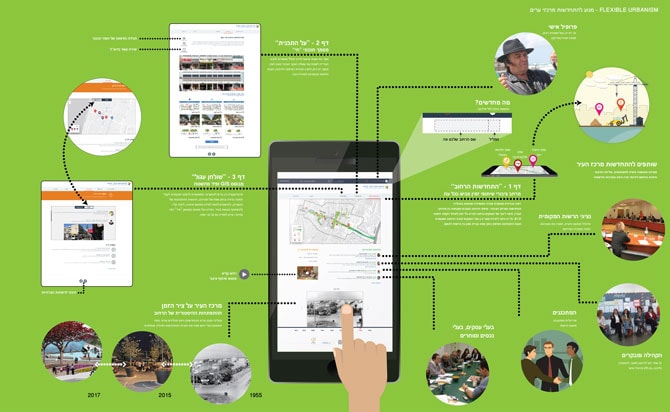Flexible Urbanism is a new sustainable tool for urban planning in the current urban environment.
The way we live in the city today is subjected to multiple forces, which are mostly flexible and constantly shifting. However, the way cities are currently designed and regulated is subjected to rigid systems and inflexible schemes which often create a miscorrelation between the plan and the urban reality.
Flexible Urbanism is a new method of urban design, which takes into consideration existing global and local ideas, and provides a foundation for flexible and undefined programs. In order to examine the proposed design methodology, a site was chosen in Netanya, Israel which clearly demonstrates the need of reflectivity between the existing conditions and official planning. In an era of constant information flow, which dominates our daily lives, a conventional city plan will be best realized as a moving, open-ended plan in an online platform. The system will evolve in tandem with the existing site and accumulate, display, and create a current view of the local urban conditions. City Council members, developers, community representatives, economic databases, government GIS maps, and local activities all feed this system. Flexible usage of programs by hours, days, and seasons provides an opportunity to deal productively with complex inner-city redevelopments. Such innovative urban design creates and supports the existing scene instead of replacing it with another.
The way we live in the city today is subjected to multiple local and global forces, which are mostly flexible and constantly shifting.
We need to stop thinking on developing new cities. We can only transform the existing one.
link to the Flexible Urbanism demo made by AL/Arch with zencity





